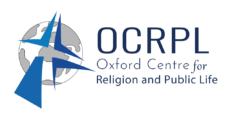Editorial Policies
While we do not require a personal statement of faith, it is expected that submissions are respectful of the Christian ethos of the journal.
Those listed as authors must be those who have made a substantial contribution to both the writing of the submission itself and to the supporting research. It is also expected that all authors agree to the publication of their work in the journal.
All submissions must cite relevant academic literature using the referencing style specified in the Submission Guidelines. Authors should avoid excessive self-citation.
Authors must declare any sources of funding for their research – for example, grants from research funding bodies – at the time of submission.
Authors must also declare any other potential conflicts of interests, even if non-financial – for example, membership of a campaign organisation or political party – if this is relevant to the topic of research.
Authors must consider whether their work may have an adverse impact on the safety and security of others – for example, Christians in contexts of violent persecution. If you are unsure, please contact the journal editor for advice.
Submissions should only use images, figures or tables if they are necessary and aid the reader’s understanding. Images should not be submitted for purely illustrative reasons.
Authors are required to obtain the necessary permissions before submitting any third-party material. This might include reproduced graphs or tables, any images, or lengthy extracts of text from other published works.
It is expected that work submitted to the journal has been carried out in an ethical manner. The European Commission’s document on Ethics in Social Science and Humanities [PDF] is a helpful guide to research ethics.
OCRPL takes the issue of plagiarism very seriously, regarding it as a severe academic malpractice. Plagiarism is most obviously committed when an author submits another person’s work in the pretence that it is their work. Plagiarism is also committed when the work of others is referred to in your submission without proper attribution.
The submission of a manuscript produced in whole or in part by generative AI is considered plagiarism, and such submissions will not be accepted.
The use of AI for proofreading is permissible, but AI should only be used to correct spelling, grammar and punctuation; AI must not be used to make substantial edits or to rewrite a paper. The use of AI to construct a bibliography is permissible, but AI must not be used to insert references to work authors have not themselves read
An AI cannot be listed as an author. Authors must declare their use of an AI in their research or in the preparation of their paper, including which AI system they have used and how they have used it. Any errors inserted into a paper by an AI remain the responsibility of the authors.
JRPL is an open-access journal. This means that all articles are freely available without readers being required to purchase access or to subscribe. There are no author charges for this.
Authors retain the copyright in their articles after publication. Articles are made available under a Creative Commons license (CC-BY) in which others can freely access, copy and use research provided proper attribution is given. Journal of Religion and Public Life by Oxford Centre for Religion and Public Life is licensed under CC BY 4.0
Authors must contact the journal editor at the earliest opportunity if, after publication, they need to correct or retract anything in their work.
